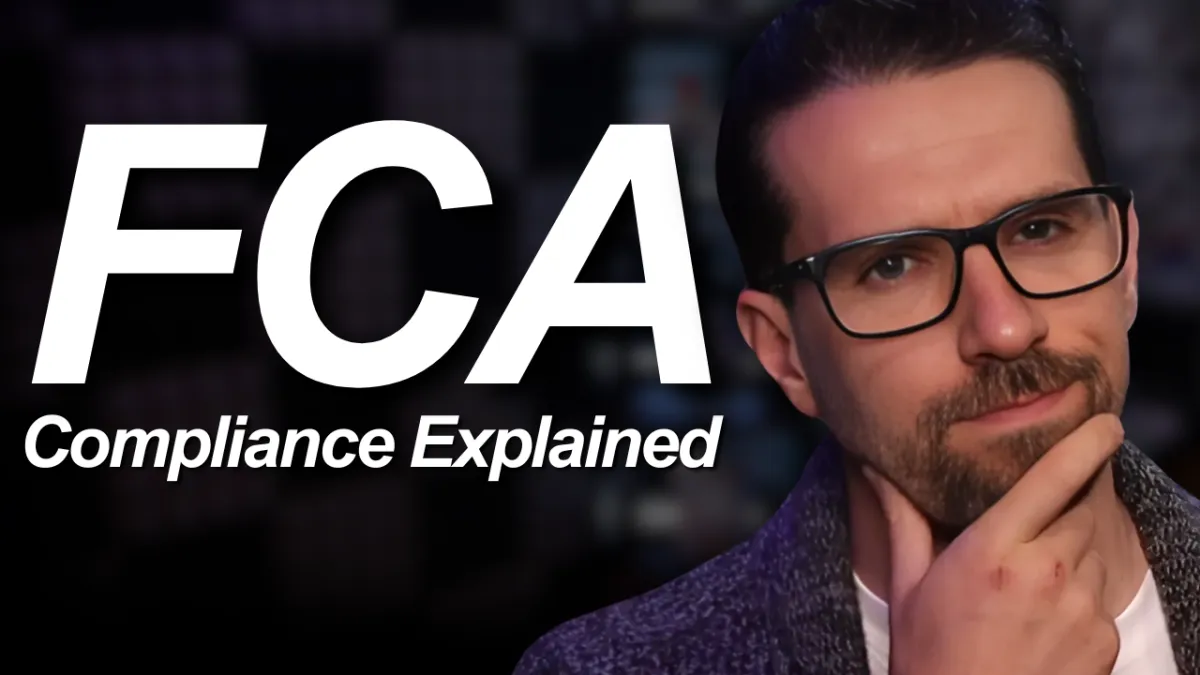Check out my YouTube channel for even more content HERE

What Is FCA Compliance and Why Does It Matter for Aspiring Mortgage Brokers?
If you're thinking about becoming a mortgage broker in the UK, one of the most important things to understand early on is FCA compliance. The Financial Conduct Authority (FCA) regulates the mortgage industry to protect consumers and uphold the integrity of the financial services market. Without FCA approval, you cannot legally give mortgage advice or arrange regulated mortgage contracts.
But what does FCA compliance really involve? And how can new or aspiring mortgage brokers make sure they start on the right path?
This guide will walk you through the essentials of FCA authorisation, your options for becoming compliant, the main regulatory responsibilities, and best practices to stay compliant as you grow.
💡 Want a shortcut to building your business the right way from day one? Join the 30-Day Mortgage Broker Boost – 30 quick-win emails designed to help you launch with clarity and confidence.
How Do You Become FCA-Compliant as a New Mortgage Broker?
To operate legally as a mortgage adviser or mortgage broker in the UK, you must be authorised and regulated by the FCA. You have two main routes to choose from:
What Is Direct Authorisation (DA) and Who Is It Best For?
With Direct Authorisation, you apply directly to the FCA. This gives you full control of your business, branding, and client experience—but it also means you’re solely responsible for:
Maintaining compliance with FCA rules
Managing systems and processes
Handling client complaints and file checks
Submitting regular reports to the FCA
This route is ideal if you’re confident, experienced, and have a clear business structure. It’s often chosen by brokers who want to build a scalable business under their own name or eventually manage a team.
If that’s your ambition, consider Mortgage Business Mastery—my 1:1 coaching programme designed specifically to help you scale, streamline, and grow with full FCA compliance baked into your operations.
What Is an Appointed Representative (AR) and When Should You Choose This Route?
Alternatively, you can become an Appointed Representative (AR) by joining a mortgage network or working under a principal firm. This means:
You operate under the compliance umbrella of an authorised firm
They take on regulatory responsibility and provide structured support
You may be limited in terms of branding, lender access, or tech stack
Becoming an AR is the most popular route for new mortgage brokers, especially if you're just starting out and want help with systems, compliance, and client onboarding.
What Qualifications Do You Need to Be FCA-Compliant as a Mortgage Broker?
To gain FCA approval, you need to prove you’re a fit and proper person and hold the necessary qualifications.
What Is the Minimum Qualification Required for Mortgage Brokers?
The industry standard is the CeMAP (Certificate in Mortgage Advice and Practice), although other Level 3 mortgage qualifications are also accepted.
The FCA will also evaluate your:
Professional and academic background
Financial conduct (including CCJs, defaults, or bankruptcies)
Character, competence, and ethics
Tip: Your qualification is just the first step. How you implement your knowledge into a structured, repeatable sales process is what separates struggling brokers from successful ones.
What Are the Key FCA Compliance Requirements for Mortgage Brokers?
Once authorised, whether as a DA or AR, you must follow the FCA’s rules and principles, including:
What Does ‘Treating Customers Fairly’ (TCF) Mean in Practice?
Treating Customers Fairly (TCF) is a central principle. It means putting your client’s needs above commissions or convenience. Your responsibilities include:
Recommending only the most suitable products
Offering full transparency on fees and risks
Ensuring clients understand your advice
Documenting all suitability evidence in your CRM
FCA audits often focus on how well TCF is demonstrated, so make it a daily habit—not a once-a-year tick box.
What Ongoing Responsibilities Do FCA-Regulated Mortgage Brokers Have?
Staying compliant isn’t a one-off task. You’ll need to meet several ongoing obligations to maintain your authorisation.
What Is CPD and Why Is It Essential for FCA-Regulated Advisers?
The FCA requires brokers to complete Continuing Professional Development (CPD) each year. Your CPD should be focused on:
Regulatory changes
Mortgage market trends
Consumer Duty updates
Advice quality and client care
A well-planned CPD strategy can help you stay competitive, compliant, and confident.
What Does the FCA Expect Under the New Consumer Duty Rules?
Introduced in 2023, the Consumer Duty places a greater emphasis on delivering good client outcomes. You must now:
Ensure your marketing is clear, fair and not misleading
Check that clients understand the products you recommend
Avoid “sludge practices” that make switching or complaints difficult
Monitor and measure outcomes post-sale
This means your advice process must be watertight—and your client journey carefully mapped.
✅ Need help building a compliant and scalable client journey? Book a discovery call to explore how Mortgage Business Mastery can support you.
How Can New Mortgage Brokers Stay FCA-Compliant Daily?
What Systems and Tools Help Mortgage Brokers Stay Compliant?
The right tools make FCA compliance more manageable. Every new mortgage broker should consider:
Mortgage CRM systems like Smartr365, Air Sourcing, or Mortgage Brain
Calendar booking tools like Calendly (to reduce missed appointments)
Secure cloud storage for client documents
Automations for post-appointment follow-up and record keeping
Being FCA-compliant doesn't mean drowning in admin. Smart systems can streamline your workflow and reduce risk.
What Are the Consequences of Non-Compliance for Mortgage Brokers?
Failing to comply with FCA regulations can be devastating. Consequences include:
Fines, warnings, or sanctions
Loss of authorisation (and livelihood)
Damaged trust and reputation
Legal action from clients
Most mistakes come not from bad intentions, but from poor systems and lack of structure. That’s why a coach or mentor with compliance experience can be invaluable early on.
Final Thoughts: Why Should Aspiring Mortgage Brokers Prioritise FCA Compliance?
FCA compliance isn’t just about avoiding penalties—it’s about building a business that lasts. From qualification to client onboarding, your processes should reflect trust, structure, and care.
Whether you aim to run a lifestyle brokerage or scale to a multi-adviser firm, start by getting your compliance house in order.
“Compliance isn’t just red tape—it’s your reputation in writing.”
🚀 Bonus Support for Aspiring Mortgage Brokers
📩 Join the 30-Day Mortgage Broker Boost – 30 bite-size tips delivered daily to help you launch with confidence
🎯 Work with me 1:1 through Mortgage Business Mastery – Streamline your business, scale with purpose, and grow with expert guidance
💬 Got Questions About Compliance?
Drop your questions in the comments or message me directly:
📲 Instagram: @ashborland
🔗 LinkedIn: Ash Borland
Let’s get you FCA-compliant and client-ready—without the overwhelm.
